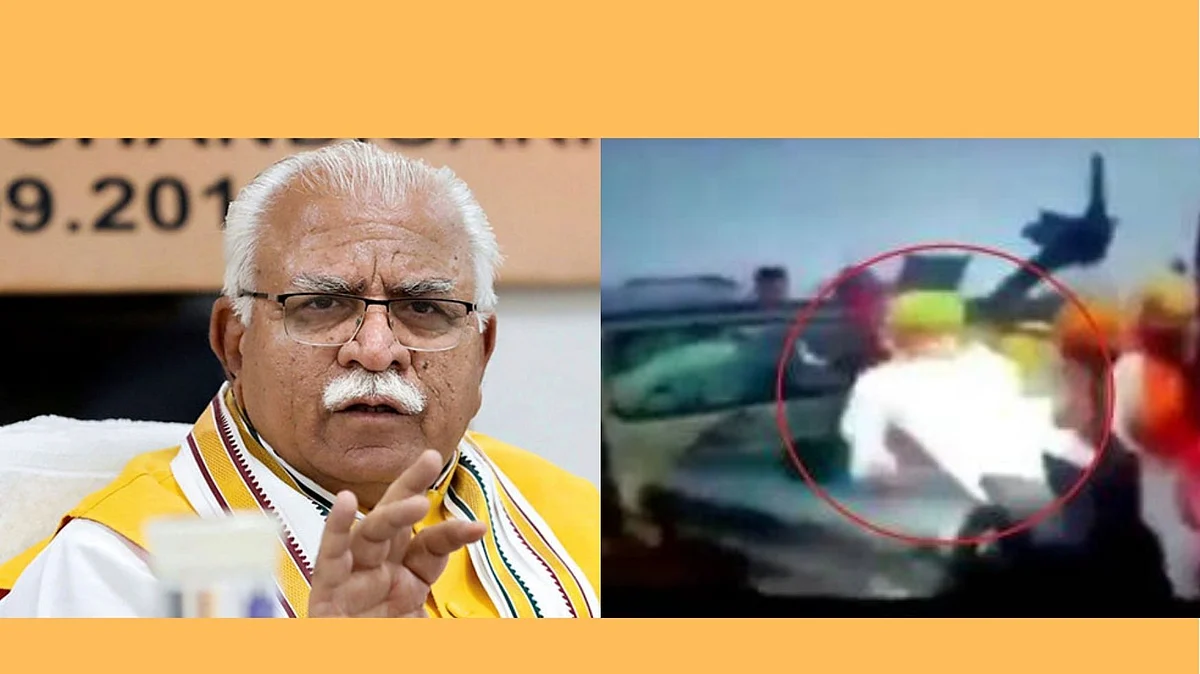Reckless rulers stirring the pot are provoking a peasant uprising
Peasant uprisings led to French and the Russian revolutions. Mahatma Gandhi ensured they remain peaceful in India. But between the Haryana CM and Lakhimpur Kheri, we see a reckless ruling class

I am haunted by a conversation with a maid I am unlikely to forget in a hurry. There were just a few spoonfuls of a vegetable dish left over after our lunch; and not wishing to throw them away, we asked her to hand it over to some hungry person on the roadside. She looked pained and asked if we would not prefer to give it to her. Surprised, we said “But don't you have a family of six or seven? It won't be sufficient for your family.”
“My daughter too will be bringing some leftovers from her employer. Give me some chilli powder and it will do,” she had told us. To my shock, I learnt they drowned their small quantities of vegetables in chillies and ate them with dry bhakris. Bhakris, made of jowar or bajra- one each, as they rolled thick, not thin like wheat chapatis, so no one needed more than one. The chilli made the food so pungent, they would drink a lot of water and that would assuage their hunger.
I am shocked to learn that more than half our population is living on so little. Marie Antoinette comes to mind here - ‘if they don't have vegetables, let them eat chillies’. But the bigger parallel with the French revolution is that while the unrest was brewing for months and may have been controlled if King Louis XVI had listened to those advocating reforms and measures to alleviate poverty, it was the complete disregard for the sufferings of the poor by French royalty and nobility that triggered the revolution. When one of their carriages crushed some poor children on the streets of Paris, they moved on saying the children deserved it for getting in the way.
I had a sense of deja vù twice over - when India's then deputy prime minister Morarji Desai's car knocked over some Shiv Sainiks on the streets of Mumbai in the late 1960s, which led to riots and the rise of this party of the Marathi manoos. And then last week when Haryana chief minister Manohar Lal Khattar was heard exhorting BJP workers to take up lathis to take on the protesting farmers.
The fact that he had to retract his statement in view of the fresh uprising of farmers shows the RSS-BJP is coming under the same kind of pressure as the French Royalty and the end cannot be a very happy one for the current regime.
The Russian revolution also happened for similar reasons with a peasant uprising - can any regime act thus or ignore the needs of the farmers or the poor? The British were more prudent, giving in to the demands of time and ushering in reforms and granting rights to the common people in the colonies without waiting for them to revolt.
The kind of barbarism displayed in the wilful crushing of farmers in Uttar Pradesh has no place in the 21st century whether in India or anywhere else in the world, in a democracy or even a dictatorship. People are bound to rise up in arms against such atrocities and we must also remember our own history. The Kheda and Champaran Satyagrahas against the British were essentially peasant uprisings in the Gandhian mould and it would be not too far-fetched to say these uprisings set the course for the exit of the British from India.
However, even if it took them a few years more to quit India, the British were ruling an alien people and they had a homeland to return to without much fuss or further trouble. But Louis XVI and his family had nowhere to go, except to flee Paris into the remote districts. They were eventually caught and brought back to Paris to be put through summary trials and executed. It was a sad and cruel end and perhaps they deserved better. Exiling them from France or Paris--rendering them tadipaar –would have sufficed. I do not believe even Tsar Nikolai and his largely female family deserved the brutal end they were subjected to. But the European experience tells us when peasants rise up in arms, the consequences are generally terrible.
However, India is essentially a peaceful, non-violent and democratic country. They will not subject any dictators or autocrats to gory ends so long as the rule of law, democracy and the ballot box prevails. Nevertheleess, Lakhimpur Kheri and Uttar Pradesh already seem like a lawless land and last week's incident has breathed fresh life into the farmers’ movement.
Not unlike the monarchy in France, this Indian Government is driving social differences among castes and classes, concentrating political power in just a few hands and, forget about cake, making it difficult for people to afford even bread or rotis.
The writing is on the wall is getting clearer and it may be too late for the government to make a course correction.
Among the aristioracy in Europe, a nobleman could commit a murder and still not hang for it whereas a hungry child stealing a fruit from a cart could either be hanged or put away forever. I see that is exactly what is happening in India today – you can lynch and be garlanded by the powers that be but even if you are raped or protest that rape, you are killed or thrown behind bars without bail for months.
We are witnessing a throwback to the pre-20th century times and we must expect the outcome will not be very happy. For, as they say, those who forget history are condemned to repeat it.
(The writer is an author, columnist and journalist. Views are personal)
Follow us on: Facebook, Twitter, Google News, Instagram
Join our official telegram channel (@nationalherald) and stay updated with the latest headlines